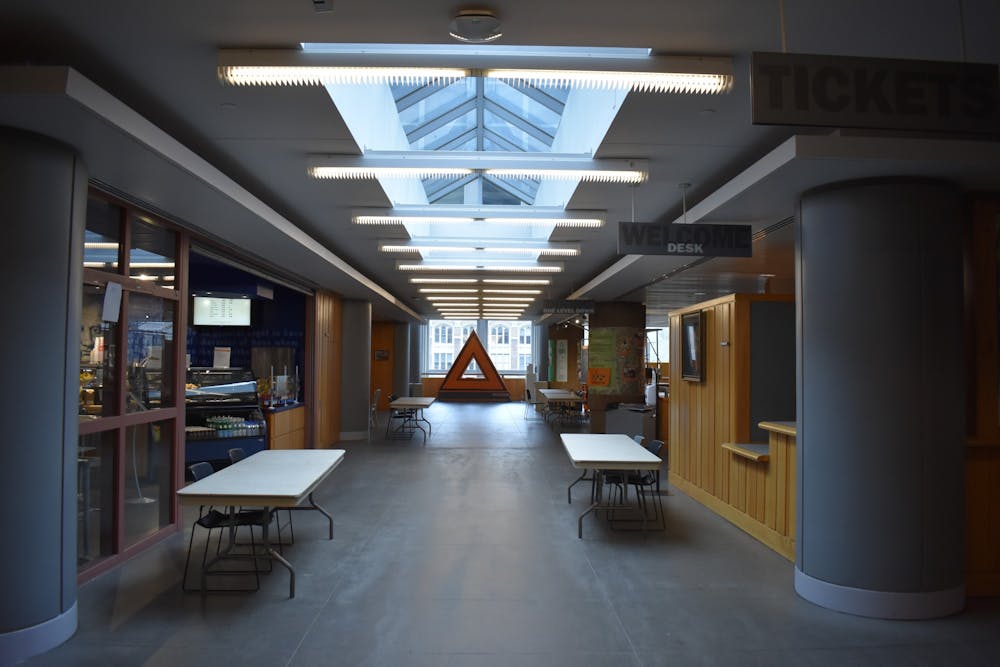In its first month, the Entryways program — a virtual experience designed to help first-year students acclimate to the college experience — has seen mixed results.
In addition to encouraging first-year students to take seminar courses, the Entryways program includes weekly colloquiums hosted by faculty and “College 101” discussions, which involve weekly meetings with Peer Academic Advisors (PAA) and asynchronous conversations on Canvas. The program runs weekly, with the exception of midterms week.
All first-year students are invited to join the programming, though participation is not mandatory.
Cecily Swanson, Associate Dean for Academic Advising, told The Daily Princetonian that she hoped Entryways would replicate as best as possible the traditional zee group experience.
According to Swanson, the colloquia aimed “to give students another way of engaging with Princeton’s rich academic life, this time through the most important feature, our faculty” and for “first-years to start thinking broadly about what a liberal arts education means, and what Princeton means when we think about interdisciplinarity.” Past faculty conversations were led by Dean of the College Jill Dolan; Assistant Professor of Computer Science Olga Russakovsky; and Fred Wherry, Towsend Martin Class of 1917 Professor of Sociology. A colloquium held today featured President Emerita Shirley Tilghman.
Similarly, the PAAs tasked with leading the College 101 experience hoped to provide a space for first-years to bond with one another and adjust to Princeton’s academic demands. Mary Davis ’22, a PAA in Forbes College, said one of her main goals was to make resources accessible to students despite them being off campus. Usually an unpaid position, PAAs received a $960 stipend this fall due to their “central role” in College 101, according to University Deputy Spokesperson Michael Hotchkiss.
The events themselves have been met with varying degrees of success, with each weekly colloquia attended by approximately a quarter of the Class of 2024, according to Swanson.
Attendance to zee group meetings has varied. Davis described participation in her zee group as “about where I’d hoped” at roughly 70 percent attendance. Whitman PAA Justin Yan ’21, however, said, “If I get half the zee group to show up, that’s a lot, even to the weekly meetings.”

“I’ve heard from other groups that have had very few people come and had everyone come,” Davis added.
Some first-years reported feeling overwhelmed by the program’s expectations. Sydney Spector ’24 said she was unhappy with “the sheer number of [events].”
“I end up not going to any of them instead of actually sorting through to find the most important ones,” she said.
The amount of time students spend looking at screens daily, from classes and homework to club meetings, has compounded this challenge. Spector said she spends “on a good day, at least four hours” on Zoom. In addition to time spent for classes, students connect with friends on Zoom. Spector added, “if you’re at home, and if you’re taking the virus seriously, [Zoom is] your only contact to the outside world.”

Some students, however, have found the adjustment to virtual learning less difficult. Jack Green ’24 has gone to all College 101 meetings and colloquia, isn’t feeling Zoom fatigue, and believes the Entryways program and “ClassPath,” a related summer advising course, have helped him adjust.
“Personally, I feel acclimated, as much as I feel like I can ... I think getting that started before the school year started was definitely helpful to transition from an overload of information and people to something more regular and intimate,” he told the ‘Prince.’ “Personally, I feel, not over-supported, but almost.”
Swanson was understanding of the difficulties faced by both PAAs and first-years and recognized that incoming students may not engage fully with all of the program’s materials.
“The College 101 materials had multiple ways of engaging, so you could choose to read through the week’s module and do the interactive assignment, you could do the asynchronous discussion, you could participate in the live conversation, even if you weren’t doing all three every week — which would of course be ideal, but I also recognize the reality,” she said.
Bethany Villaruz ’24, who has not attended many Entryways events, recognized the challenge of creating engaging virtual programming for students who expected to be on campus.
“Honestly, I think they did the best they could, given the circumstances,” she said. “I don’t think it’s anyone’s fault, necessarily, I just think it’s hard to make these kinds of things work in an online model.”








